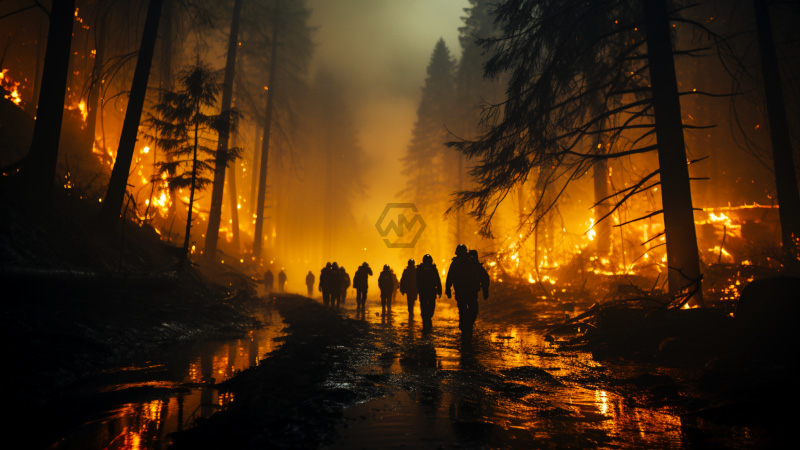- A fast-moving wildfire on Crete forces evacuation of 3,000 people, including tourists.
- Firefighters face challenges due to strong winds and rugged terrain.
- Authorities link escalating wildfire risks to climate change impacts.
A fast-spreading wildfire erupted in the southeastern region of Crete, Greece’s largest island, triggering the evacuation of thousands as flames consumed forestland and approached residential zones.
Local authorities arranged emergency accommodations in nearby shelters, sports halls, and unaffected hotels for the estimated 3,000 evacuees. Though no casualties were reported, several homes suffered fire damage.
Crete Battles Fierce Wildfire as Thousands Flee Popular Tourist Area
Crete’s southeastern coastline, typically bustling with holidaymakers in July, turned into a scene of urgency as thick smoke blanketed the skies and emergency sirens echoed through villages. The wildfire, which erupted near Ierapetra, tore through dense vegetation, rapidly encroaching on inhabited areas. The force of the wind caused flare-ups and scattered embers that overwhelmed local containment lines.
Firefighters from across Greece, supported by reinforcements from Athens, engaged in a grueling battle to suppress the flames. Aerial units carried out water drops while ground crews carved firebreaks and protected homes. Despite coordinated efforts, the shifting wind patterns made it difficult to predict the fire’s trajectory. Authorities remained vigilant for possible new ignition points.
Local residents described scenes of panic and swift displacement, as buses and emergency services coordinated mass evacuations. Tourists, many caught off-guard, were relocated to temporary shelters. The quick mobilization of aid centers prevented casualties, though the emotional toll and disruption to holiday plans were evident.
In a broader context, Greece is grappling with an extended and increasingly unpredictable wildfire season. Similar blazes are simultaneously raging on Kythira island and in northern Chalkidiki. Meteorologists and environmental scientists emphasize that recurring heatwaves, coupled with prolonged droughts, are creating prime conditions for more frequent fire outbreaks — a concerning trend linked to global climate change.
The wildfire in Crete underscores the urgent need for climate-resilient policies and improved disaster response, as Greece braces for a future of increasingly volatile fire seasons.
“The Earth is what we all have in common.” — Wendell Berry



